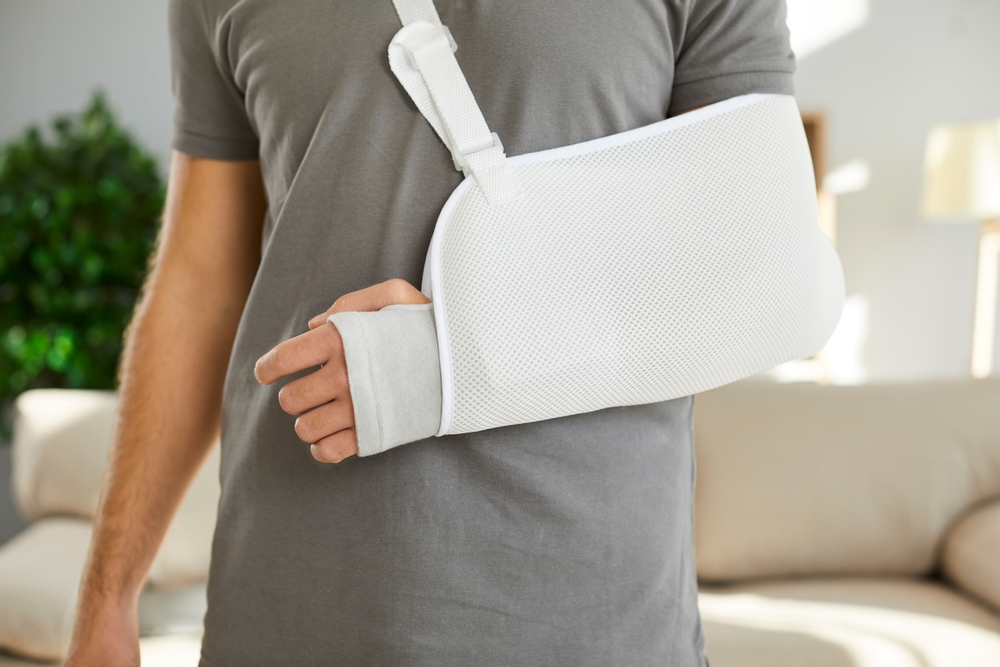Life doesn’t always unfold as we expect. One moment, everything seems fine, and the next, an unexpected injury can turn your world upside down. The fallout from a serious injury isn’t just physical; the emotional and financial burdens can feel just as heavy. You may find yourself in pain, unable to work, and struggling to keep up with mounting medical bills, all while wondering how you’ll rebuild your life. Speaking with a personal injury lawyer can be a crucial first step in protecting your rights and exploring your legal options.
If you’re reading this because you or someone you love has been hurt, you’re not alone. Understanding common types of injuries in personal injury cases can help you begin to process what’s happened. More importantly, it can help you understand the steps you can take to recover physically, emotionally, and financially.
Types of Injuries
1. Car Accident Injuries

Car accidents are one of the most common causes of injuries. From high-speed collisions to fender benders, the aftermath of an accident can leave you reeling. Physical injuries vary, ranging from whiplash and broken bones to traumatic brain injuries (TBIs) and spinal cord damage. Beyond the physical pain, car crashes often come with steep financial costs.
The Financial Toll of Car Accident Injuries
The financial toll begins stacking up immediately. Ambulance rides, emergency room visits, surgeries, and physical therapy can add up to tens or even hundreds of thousands of dollars. On top of that, lost wages from time off work can make it hard to keep up with household expenses. And then there’s the emotional strain.
The fear of getting back behind the wheel, sleepless nights spent replaying the accident, or even dealing with post-traumatic stress disorder (PTSD) can feel just as overwhelming as the physical recovery. Whether you were hurt because another driver was distracted, reckless, or under the influence, there are legal avenues to help recover the compensation you need to move forward.
2. Injuries from Semi-Truck Crashes
An accident with a semi-truck tends to be serious due to the sheer size and weight of these vehicles. When a collision occurs, the injuries are often severe, ranging from crushed limbs to life-altering brain or spinal cord damage.
The Financial Toll of 18-Wheeler Accident Injuries
Victims may face long-term disability, requiring costly medical equipment, home modifications, or round-the-clock care. While insurance adjusters working for trucking companies may try to minimize compensation, these kinds of injuries often come with substantial expenses that demand a full and fair recovery.
Trucking companies are big businesses, and their legal teams are quick to act after an accident. Victims need to have someone looking out for their best interests, so they’re compensated fairly.
3. Slip and Fall Injuries
A simple slip on a wet floor or a stumble on uneven pavement might not sound nearly as serious as a car crash, but the injuries can be just as devastating. Common outcomes from slip and fall accidents include fractures, torn ligaments, and severe head or back injuries.
The Financial Toll of Slip and Fall Injuries
The aftermath often involves more than just physical pain. Injuries like these can make it difficult or impossible to work, especially if you’re in a physically demanding field. On top of medical bills and lost wages, the emotional toll can leave you feeling unsteady—not just on your feet, but in your life.
Many slip and fall accidents happen on someone else’s property, whether at a store, workplace, or apartment complex. Property owners have a responsibility to maintain a safe environment, and if they fail to do so, they may be held accountable for the harm you’ve suffered.
4. Traumatic Brain Injuries (TBIs)
Traumatic brain injuries are often life-changing, affecting not just the injured person but their entire family. TBIs can result from any number of incidents, including car crashes, falls, or accidents involving faulty products. The symptoms of a brain injury range from headaches and memory loss to severe cognitive or physical impairments.
The Financial Toll of Traumatic Brain Injuries
The financial costs tied to a TBI can be staggering. Brain injuries often require extensive medical care, ongoing therapy, and special accommodations in daily life. Beyond the physical effects, living with a brain injury can mean struggling with emotional changes like anxiety, depression, or frustration that make day-to-day life harder.
It’s important to know that many TBIs happen because of someone else’s negligence, whether it’s a careless driver, unsafe property conditions, or a defective product. Holding the responsible party accountable can help ease the financial burden and provide the resources needed for long-term care.
5. Spinal Cord Injuries
A spinal cord injury can permanently alter the course of your life. Paralysis, whether partial or complete, brings challenges that are hard to imagine. People coping with spinal injuries often find themselves dealing with long hospital stays, multiple surgeries, and intensive rehabilitation programs.
The Financial Toll of Spinal Cord Injuries
These injuries also bring massive financial implications. Many people with spinal cord damage require wheelchairs, home modifications, or even personal caregivers to manage daily tasks. None of this comes cheap, and insurance payouts rarely cover the full costs.
6. Birth Injuries
For parents, the thought of a preventable injury during childbirth is almost too painful to bear. Birth injuries can leave children facing lifelong challenges, from cerebral palsy to developmental delays caused by medical negligence or exposure to harmful substances.
The Financial Toll of Birth Injuries
The financial toll of caring for a child with disabilities is immense. Medical costs, specialized therapies, adaptive equipment, and special education can quickly overwhelm a family’s budget. And for the parents, the emotional heartache of watching their child struggle can be crushing.
If your child’s injury was due to someone’s negligence—whether it was a doctor, hospital, or manufacturer of a defective medical device—you deserve answers. More importantly, you deserve justice and the means to provide your child with the best possible care.
7. Injuries from Defective Products
We expect the products we use every day to be safe, but sometimes they’re anything but. Faulty airbags, defective appliances, or hazardous medical devices can lead to injuries ranging from cuts and burns to more serious conditions like organ damage or poisoning.
When these incidents happen, the physical repercussions are often accompanied by frustration and anger. You trusted a product to work as advertised, and instead, you were hurt.
The Financial Toll of Defective Product Injuries
On top of medical bills, victims may deal with lost wages, property damage, and the emotional stress of dealing with manufacturers unwilling to take responsibility for their actions.
If a defective product caused your injury, you have options. Accountability and compensation can ease the burden and send a clear message to manufacturers about their responsibility to keep people safe.
8. Emotional and Psychological Injuries
When people picture the aftermath of an accident, they often focus on physical injuries. However, the emotional and psychological wounds can be just as life-altering, if not more so.
The emotional toll can show itself in different forms. You might struggle with frequent flashbacks or nightmares about the event. Even simple activities, like driving after a car crash or returning to a place where you fell, might fill you with fear or panic. Over time, these invisible injuries can take a toll on your well-being and even affect your ability to work or maintain meaningful connections.
The Financial Toll of Emotional and Psychological Injuries
Whether your trauma stems from a car accident, a slip and fall, or another life-altering injury, the emotional harm you’ve endured is just as valid as a broken bone or a concussion.
Legal compensation can be instrumental in helping you afford therapy sessions, mental health services, or time away from work to focus on your recovery without financial strain. With the right legal support, you can make sure your pain and suffering are acknowledged and accounted for.
9. Wrongful Death
The most devastating injury of all isn’t one you endure yourself—it’s losing someone you love. Wrongful death cases arise when a life is cut short due to someone else’s careless or intentional actions. The emotional toll is immeasurable, but the financial strain can compound the pain.
The Financial Toll of Wrongful Death
Funeral costs, medical bills, and the loss of income can leave a family in financial turmoil after a loved one’s death. Beyond the dollars and cents, families often file wrongful death claims to find some measure of justice and accountability, ensuring no one else has to suffer the same loss.
Steps to Take After an Injury

The day after an accident can feel overwhelming. You’ve already taken the vital first step of seeing a doctor, but now you may be wondering, “What comes next?” It’s a difficult time, but there are steps you can take to protect your rights, preserve evidence, and set yourself up for a successful claim.
1. Document Everything
If you have photos or videos from the scene of the incident, now is the time to review and organize them. Did you notice other witnesses? It’s a good idea to jot down their names and contact information if you managed to get it. These details can help your lawyer build a strong case later.
2. Keep Track of Your Medical Records
Your medical care doesn’t end with the first visit to the doctor. Follow through with all recommended treatments, therapies, and follow-ups. Doing so not only helps you heal but also provides a detailed record of the severity of your injuries.
3. Don’t Talk to Insurance Companies
Avoid giving recorded statements or accepting quick settlement offers without consulting a lawyer first. Your words could be used against you, and low-ball settlements rarely cover the full extent of your pain and suffering or long-term needs.
4. Talk to a Lawyer
The most important step you can take is to speak with a lawyer experienced in personal injury cases. They will help you understand your rights, evaluate the strength of your case, and handle the legal process.
The Road to Recovery
No matter the type of injury you’ve suffered, the toll it takes on your life can feel insurmountable at times. From the pain and physical limitations to the mounting financial pressures and emotional upheaval, recovery is often about more than just healing your wounds. It’s about reclaiming your life.
The path forward isn’t always clear, especially when you’re up against insurance companies or corporations trained to minimize your claim. You deserve someone in your corner who understands what’s at stake—not just your financial needs, but your well-being and your future.
Talk to Alexander Law Group About Your Case Today
At Alexander Law Group LLP, we understand the challenges you’re facing after a serious injury. Our team is here not just to fight for you, but personal injury attorney to help you get what you need to move forward. We’ve fought for justice in cases involving catastrophic injuries, trucking accidents, defective products, and more, and we won’t stop until you receive the compensation you and your family deserve.
If you’re ready to take the first step in your recovery, call us at 408-289-1776, email our office, or fill out our online intake form. We don’t just come to fight; we come to win. And we’ll be here for you every step of the way.


